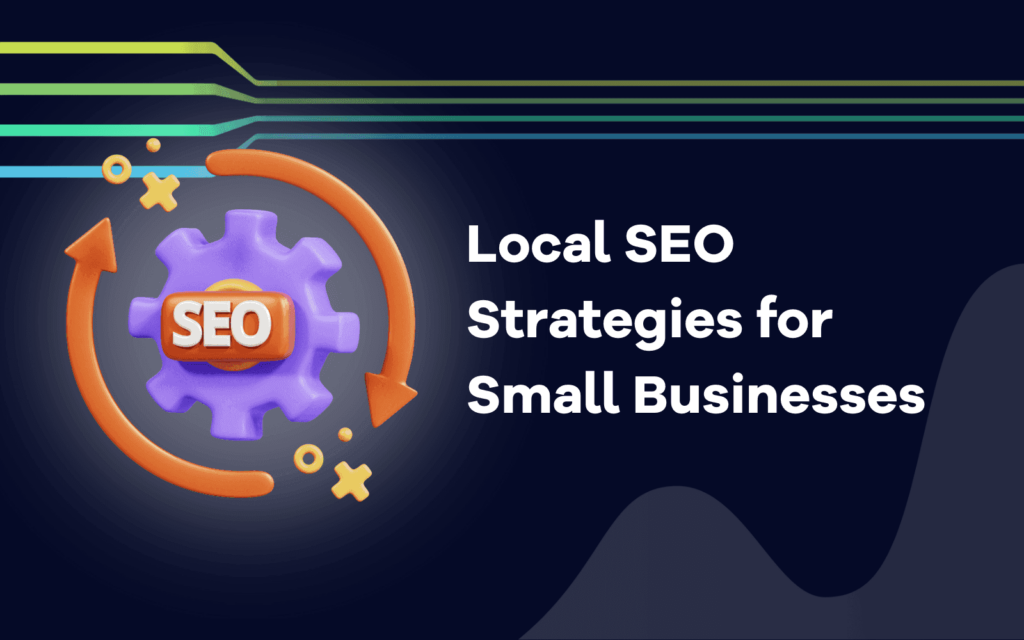Local SEO strategies for small businesses

Understanding and implementing local SEO strategies is essential for small businesses aiming to attract more customers within their vicinity. In this blog post, we will explore these techniques and how they can be utilized to improve your business's online presence.
To ensure your small business thrives in the digital age, embracing various regional optimization methods is crucial. This can not only boost your visibility on search engines but also lead to increased foot traffic and revenue.
Grasping the Basics of Local SEO
Before diving deep into local SEO strategies, it's important to grasp its core concept. Local SEO refers to the process of optimizing your online presence to attract more business from relevant local searches. These searches take place on Google and other search engines.
To begin with, ensure your business is listed on Google My Business (GMB). This free tool allows you to manage how your business appears on Google Search and Maps, including your business name, location, and hours of operation. It's an essential first step in any local SEO checklist.
Citations, which are online references to your business's name, address, and phone number (NAP), also play a significant role. Creating accurate and consistent citations across various directories aids in legitimizing your business and enhances your search engine rankings.
Keywords are the backbone of local SEO, and selecting the right local keywords is paramount to visibility. These should be relevant to your business and include geo-specific terms that local customers are likely to use.
Optimizing for Mobile Users
In today's market, a mobile-friendly website is no longer an option—it's a necessity. With the majority of local searches conducted on mobile devices, your site needs to be responsive and easily navigable on smartphones and tablets.
Page speed is another critical factor as it influences both your search engine rankings and user experience. Tools such as Google's PageSpeed Insights can help you evaluate and improve your website's loading time on mobile devices.
Local content creation also caters to the mobile audience, considering how frequently users look up local information on the go. Create content that speaks directly to your local customer base—discuss local news, events, or activities, always relating back to your business and locale.
Enhancing Local Listings and Reviews
Small businesses must not overlook the importance of local listings and customer reviews. A hefty portion of local SEO is influenced by your presence in local business directories beyond just Google My Business, such as Yelp or TripAdvisor.
Encourage your customers to leave positive reviews by providing exceptional service and gently reminding them after their purchase or visit. Responding to reviews, both positive and negative, can also positively impact your SEO as it shows engagement and customer service dedication.
Every review is an opportunity to improve your public relationship and use feedback to optimize your business operations further.
Leveraging Social Media for Local Engagement
Social media platforms are a powerful tool in your local SEO arsenal. They offer an avenue to connect directly with your local consumer base and promote your products, services, and events.
Create content tailored to local interests or participate in community discussions. Platforms like Facebook and Instagram also offer location-based features that you can utilize to enhance visibility in your area.
Collaborating with local influencers and businesses can expand your reach and establish your reputation within the local community.
Local SEO strategies for Link Building
Link building remains an essential component of local SEO strategies. For small businesses, acquiring links from reputable local sources such as newspapers, community websites, and partnerships can signal to search engines the relevance and authority of your website in the local context.
Tracking Your Progress
Without measuring your local SEO efforts, it’s tough to gauge success. Use tools such as Google Analytics to track traffic from local searches, and keep an eye on your rank in search engine results pages (SERPs) for local keywords.
Analyze which strategies are bringing in the most local visitors and adjust your approach accordingly. Remember, SEO is not a set-it-and-forget-it task; continual optimization is key.
Adapting to Local SEO Changes
The landscape of local SEO is everchanging, with search engine algorithms constantly evolving. It's vital for small businesses to stay informed about the latest local SEO strategies and trends.
Attending workshops, webinars, or joining local business groups can provide invaluable insights into the world of local search engine optimization.
As you implement these strategies, remember that SEO takes time. Patience and persistence are virtues in the journey to improve your local online presence and grow your small business.
To conclude, local SEO strategies are critical for small businesses seeking to enhance their local market presence. By focusing on foundational elements such as a strong Google My Business profile, mobile optimization, and local link building, small businesses can compete effectively in the digital world. Continuous monitoring and adapting to SEO changes will further solidify your standing in local search results. Start employing these tactics today, and watch your business flourish within your community.

Related